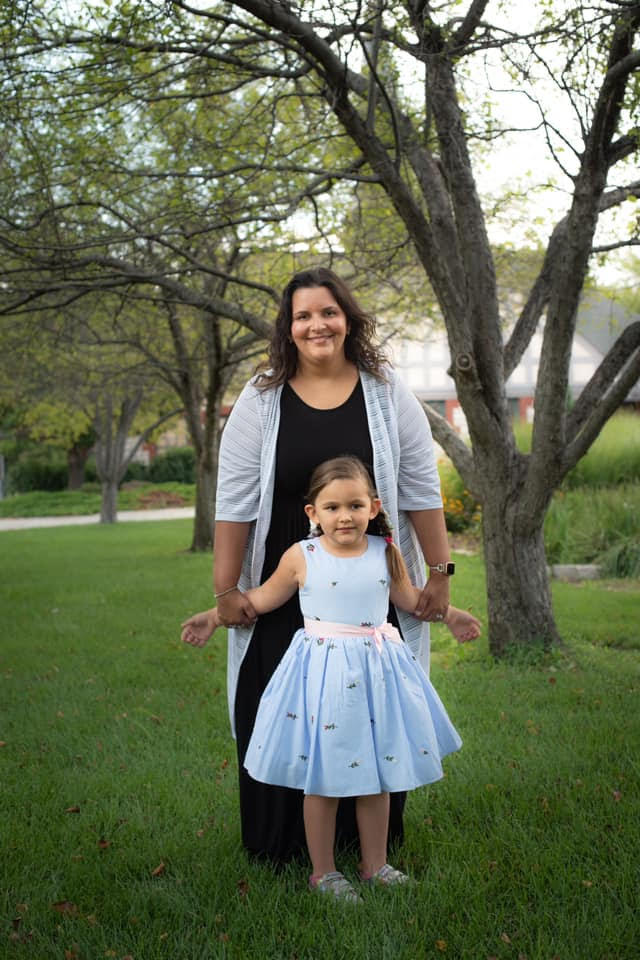
Kansas Collaboration Advances Maternal Depression Screening
This opinion piece by Health Fund President David Jordan originally appeared in the Kansas Reflector on Thursday, October 14, 2021.
When Anjali Kansal-Rill gave birth in 2016, things did not go as planned. Anjali had an emergency cesarean section and faced challenges with breastfeeding. One week postpartum, she didn’t feel like herself. Her doctor said she would prescribe medication if Anjali was still feeling “down” at her next appointment, in eight weeks.
Maternal depression, also known as perinatal or postpartum depression, occurs during pregnancy or the 12 months immediately following delivery. It is the most common obstetric complication in the country. Perinatal depression is linked to an increased risk of preterm birth and low birthweight. Postpartum depression can lead to adverse effects for mothers and infants, affecting the course of children’s health and development.
Maternal depression, like maternal mortality, disproportionately impacts women of color. According to the CDC, 2018 postpartum depression rates were higher among non-Hispanic women of color. Addressing these disparities is essential to ensuring mothers and babies have every chance to be healthy.
As a social worker, Anjali was aware of maternal depression. She thought she may have been overreacting, but her condition worsened.
One night her daughter woke up crying.
“I changed her diaper, but she was squirming so much I couldn’t get her back in her swaddle,” she said. “I got so frustrated I started to cry. … I was afraid I would hurt the baby. I yelled at my husband to take over. He brought her to me to nurse, but my breasts were so painful I broke down sobbing. What good was a mother who couldn’t calm or even feed her child? I told him they would be better off without me.”
The next day, Anjali’s husband made an appointment with her doctor, who diagnosed her with postpartum depression and prescribed medication.
Kansas mothers needed screenings
According to the 2018 Kansas Pregnancy Risk Assessment Monitoring System, approximately one in five mothers reported experiencing depression during pregnancy and one in seven mothers exhibited symptoms of postpartum depression. However, 17% reported they did not receive treatment. Most cited cost or that “it seemed too difficult” as barriers.
Anjali obtained treatment. Originally, she was scheduled for evaluation more than 60 days postpartum, which is when 9,000 Kansas mothers are dropped from Medicaid enrollment each year. Many of these mothers had no way to be screened or treated for maternal depression.
The 2018 Kansas PRAMS data showed 98.9% of new mothers reported their newborn had a well-child visit. In 2016, federal guidance allowed states to cover maternal depression screening during the well-child visit.
To take advantage of this option, Kansas needed to adopt a billing policy change. As of 2019, Kansas was one of only 10 states that had not changed its policy.
In 2019, Kansas joined the Pediatrics Supporting Parents Medicaid/CHIP State Implementation Workgroup, a national effort to develop policies that leverage the pediatric well-child visit to improve social and emotional health. The team of early childhood stakeholders and providers, led by the Kansas Department of Health and Environment with support and facilitation provided by the United Methodist Health Ministry Fund, prioritized expanding maternal depression screens to improve maternal and child health.
The team developed recommendations to allow maternal depression screens to be billed as part of the well-child visit. Kansas Medicaid approved the policy, which became effective this year.
According to Mathematica Policy Research, undetected and untreated maternal depression could cost as much as $17,100 per mother-child pair, meaning Kansas will save millions of dollars by identifying and treating maternal depression as a result of this policy.
What about Anjali and the important work ahead?

Anjali said, “I love my daughter more than I ever could have imagined. It scares me to think about where she would be if I hadn’t gotten help.”
Thanks to maternal depression screenings, more Kansas mothers’ depression will be identified. But barriers to treatment remain, including health care coverage and costs.
New federal policy allows states to extend Medicaid coverage to 12 months postpartum. Kansas needs to adopt this policy change to ensure mothers get the treatment they need.
Anjali Kansal-Rill stands with her daughter. (Anjali Kansal-Rill)
Extending coverage would prevent more pregnancy-related deaths — which disproportionately impact Black women in Kansas. It would also ensure mothers and babies have the healthiest start, save the state money by averting future care and decreasing interaction with the child welfare system, and reduce inequities.
Maternal depression screenings are an important baby step in improving the health of families in our state. Let’s take the leap for Kansas mothers and extend postpartum coverage.